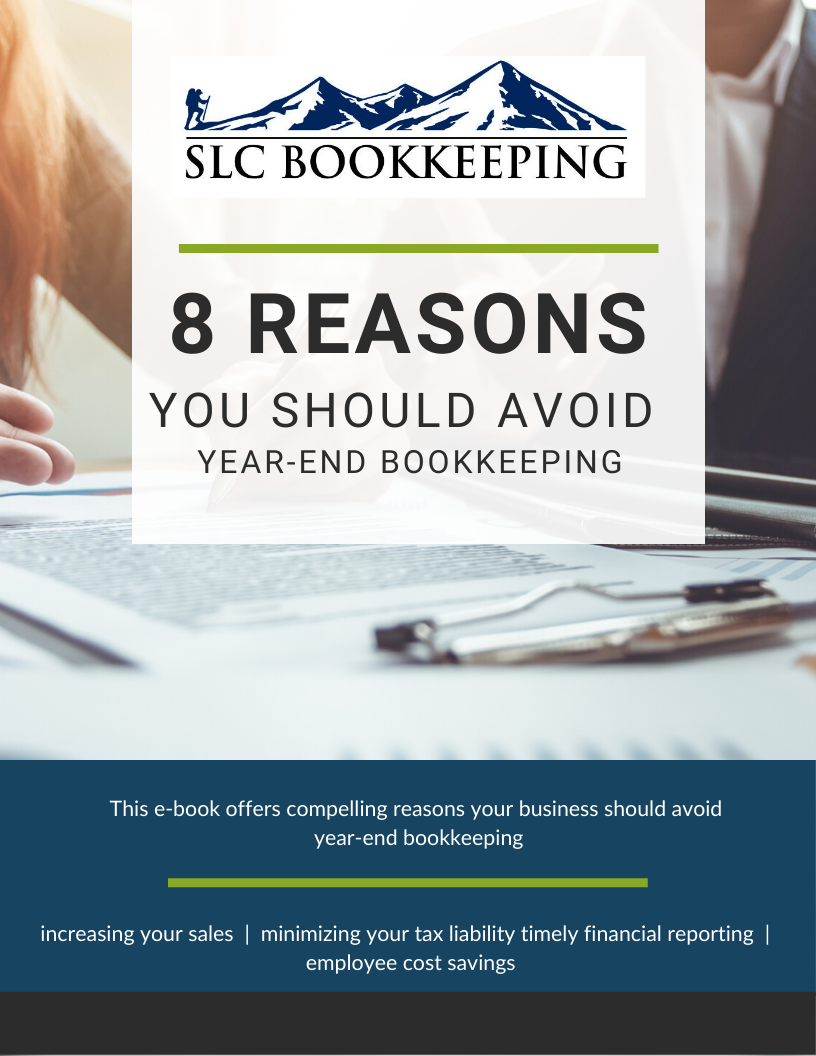4 Critical Bookkeeping Tasks for December
 December is a critical month for every business on a lot of levels, but definitely from a bookkeeping aspect. Many small business owners struggle with finding the time for their business during the holiday season. However, putting your bookkeeping on the backburner in December is a huge mistake. There is too much to be done before year end for your books so you need to stay focused. Small businesses typically focus on hitting their sales goals, assessing the budget, or concentrating on their personal lives in December but your bookkeeping needs attention as well. Here are four critical bookkeeping tasks you need to attend to every December.
December is a critical month for every business on a lot of levels, but definitely from a bookkeeping aspect. Many small business owners struggle with finding the time for their business during the holiday season. However, putting your bookkeeping on the backburner in December is a huge mistake. There is too much to be done before year end for your books so you need to stay focused. Small businesses typically focus on hitting their sales goals, assessing the budget, or concentrating on their personal lives in December but your bookkeeping needs attention as well. Here are four critical bookkeeping tasks you need to attend to every December.
Clean up Bookkeeping
December is a great time to comb over your bookkeeping system and make sure everything is in order. Doing a review on your QuickBooks ‘Ask My Accountant’ account is a great place to start. Figure out and properly code anything you have moved to this account. If you are truly unsure how to code a particular transaction you need to put as many details in the memo as possible. That way your review with your CPA will be as efficient as possible.
Another area of your books that needs attention is your assets and liabilities. You need to make sure that no small transactions were improperly coded to asset accounts. Mistakes I often see are office supplies being coded to a computer equipment asset account. Often times a business will purchase a computer from an office supply store that truly is an asset. However, the next purchase of small office supplies is then mistakenly coded to the asset account because that is what was used for the prior purchase. Lastly, make sure that all your payroll liabilities, loans, and lines of credit have accurate balances.
CPA Bookkeeping Review
You have to be sure to have your CPA review your bookkeeping prior to year-end. Waiting until after the calendar turns to meet with you CPA is a huge mistake. First, it is incredibly important to have a tax review and a tax estimate prior to year end. That way you will have some idea of your tax liability. If you are going to owe a lot of money you want to know if there is anything you can do to curtail your tax liability. Additionally knowing that you will owe taxes is a lot less painful with a four month warning rather than a four day warning.
Your CPA can also help you with any transactions that you were not sure how to properly code. They should also review your books to look for any errors. If you classified a large $30,000 purchase as an expense, but it really needs to be treated as an asset you have under stated your actual profit and taxable income by a large margin.
Create a Budget
Creating a budget is absolutely essential for your small business. It is also important to create your budget prior to year end not after year end. Come December you have a pretty good idea how your year is going to end up from a financial perspective. Any major changes in your business during December would require the budget to be re-worked but it would be rare for this to happen.
It is important to have your budget created before the calendar turns so you can hit the new year running. Once you hit the new year rather than planning you should be acting. January should be a time for executing on your plan and budget, not creating it.
Bookkeeping System Assessment
The last task I think you should consider is an overall assessment of your bookkeeping needs. Do a thorough financial analysis for your small business to see what information it provides you. Is the information you get from your financial reports helpful? Do your financial reports help you understand how to grow your business? Are there any shortcomings in your financial reporting? Use this financial analysis to make any necessary adjustments to the bookkeeping system to better suit your needs. Don’t be afraid to challenge your bookkeeper with a project by asking for more from your bookkeeping system.
Need some bookkeeping help this December to make sure next year is your best year ever?


Comments